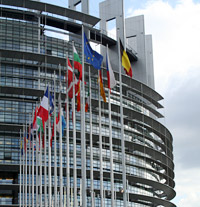The European parliament has adopted a resolution calling on the Russian government to cancel the results of the parliamentary elections on December 4 and hold new free elections. In the same resolution the European MPs are calling on Russia to register all opposition parties before the next elections and investigate all electoral violations on December 4. The European parliament has asked the EU leadership to raise these issues during the EU-Russia two-day summit. Of course there is no possibility that Russia may invalidate the results of elections, and following the mentioned announcement the Russian foreign minister announced that those issues would not be discussed during the meetings as those were not included in the agenda. According to the Russian government, this resolution is not correct and it is an attempt to interfere with the internal affairs of another country. However, this announcement concerning violated elections concerns positive messages too. Maybe it is not so much targeted at Russia but other post-Soviet countries that are going to hold elections in the near future, including Armenia as well. People may remember the last elections when the European institutions did not criticize violations and used double standards. However, a lot of things have changed in the world since 2007 and 2008, as well as the reaction of European institutions to democracy violations has changed. Of course this message can be a warning for the Armenian government because Armenia is not Russia and cannot tell the Europeans to keep the hands away. During the past four years the incumbent government has been looking for legitimacy of its power in the European institutions and for many times have announced about fair elections and democratic processes, due to which hardly these institutions may tolerate those things in Armenia as they have to do with Russia. This means that the Russian elections and the reaction of European institutions have somehow raised the level of cautiousness for legitimate elections. If the Armenian elections proceed in the same manner as in Russia, i.e. as it has been normally done, and do not receive the same reaction as it was done this time, the Russian government will have an opportunity to develop its thesis of “world imperialism against Russia”, which is the mainly “ideological weapon” in Russia for abusing democracy. Will the Armenian authorities be able to give up on the tradition of falsification of elections? The possibility of this is as much as the possibility that the Russian authorities may give place to the petition mentioned above and hold new elections.

